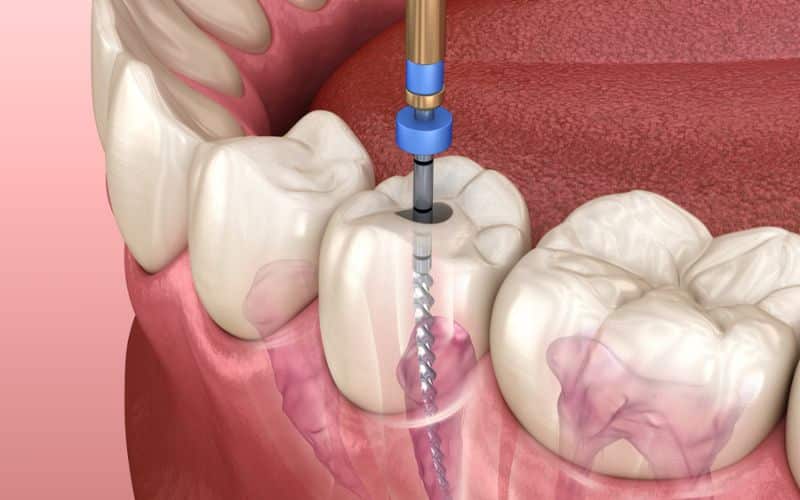General dentists have a wide range of services they can provide, including filling cavities and providing dental implants. Some can even perform some types of oral surgery, such as tooth extractions.
However, when it comes to more invasive procedures, they may refer you to an oral surgeon. Here are some questions to consider.
Dental Implants
While general dentists wear many hats and are capable of performing a variety of dental procedures, they are not trained to handle everything. Some dental surgeries require special training and equipment that only an oral surgeon can provide.
For example, a patient who has an infected tooth root will typically need a root canal procedure. This involves drilling into the tooth, removing the infected tissue and sealing the hole with gutta percha.
This is a process that can be performed by the dentist, but in some instances, the dentist may need to refer the patient to an oral surgeon for this treatment. This is because the dentist is not able to fully complete the root canal procedure due to the shape and location of the affected tooth.
An oral surgeon is a dental professional with extensive training in the mouth, jaw, and neck. They are also trained to handle dental implants and wisdom teeth removal. For these reasons, they are better suited to perform certain types of oral surgery.
While general dentists can perform some types of oral surgery, they are not able to handle more advanced procedures. This is because the surgery requires a more in-depth knowledge of anatomy, bone structure and the ability to work under anesthesia. General dentists can, however, help patients find an oral surgeon for other types of dental procedures.
Tooth Extractions

Tooth extractions are necessary for a variety of reasons, from wisdom tooth removal to treating an infected or decaying tooth. Typically, general dentists can perform simple extractions in their own offices with the help of a local anesthetic. They may also offer dental sedation to reduce your anxiety.
A simple dental extraction involves a dentist using forceps to loosen and remove a visible tooth from the socket in your jawbone. The process starts by the dentist injecting anesthetic to numb the area. Next, they will use an instrument called an elevator to widen the socket for easier access. Once the socket is opened, they can easily pull out your tooth.
While most general dentists have the training to perform simple extractions, some don’t do this type of treatment at their own practices. If you need a surgical dental extraction, your dentist will refer you to an oral surgeon for the procedure.
After a tooth has been removed, your dentist will place some gauze over the site to control bleeding. They will ask you to bite down on it for firm pressure, and you should maintain this position for an hour afterward to promote clotting. You should avoid playing with the extraction site, as this could disrupt the clot and lead to complications like dry socket. Instead, you should gently clean the rest of your mouth to prevent infections.
Root Canals

The root canal is a serious dental procedure that involves entering the tooth’s anatomic space and extracting inflamed, dead or damaged tissue. While the name suggests that the process is complex, it’s actually quite straightforward. During a root canal, the dentist opens up the tooth with a drill and inserts specialized dental instruments into the tooth’s pulp chamber and canals to remove the damaged tissue. They then shape the empty area and fill it with a rubber compound called gutta percha. Then, a dental filling is placed over the opening to seal it and prevent bacteria from entering the tooth.
Depending on the case, a general dentist may also place a crown or other restoration over the tooth to protect it in the long-term. This is particularly common for teeth that have been injured in the past and need extra protection.
A general dentist is capable of performing a root canal, but they are more likely to refer the patient to an endodontist for this treatment instead of carrying out it themselves. This is because endodontists have special training in dealing with difficult root canal cases, traumatic dental injuries and other endodontic procedures. They are more experienced in these treatments and can offer patients a better level of service.
Gum Surgery

Some patients require gum surgery to repair damage from disease or injury. Whether it’s to remove unhealthy tissue or restore the gum line, general dentists can perform basic forms of oral surgery at their clinics. They may refer patients to an oral surgeon for more complex procedures.
For example, a patient with severe periodontitis might need a root canal treatment to remove damaged tooth tissue and rebuild the inside of their teeth. This treatment is considered oral surgery and requires local anesthesia to numb the area. A general dentist can also perform a simple dental implant to replace a missing tooth. However, the procedure requires a titanium rod to be surgically placed into the jawbone and four to six months of healing to allow the rods to integrate into the gum line.
General dentists can help patients with this recovery by giving them instructions to follow and recommending the right medications. They can also suggest methods to control pain and swelling, such as applying ice or taking over-the-counter medications. To reduce post-treatment discomfort, the dentist can also prescribe stronger painkillers if necessary. In addition, the patient should arrange for a ride to and from the office since the combination of anesthesia, painkillers and minor pain can make driving unsafe. Patients should avoid smoking or drinking through a straw as well. This can cause the suction from liquids to disturb the clot that forms in the socket where the tooth was removed.


